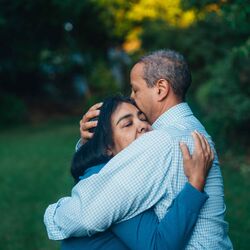Is it ok to be anxious?
Anxiety is a normal part of life. The amygdala (a part of our brain) flags up any possible threats from which we need to defend ourselves. Much earlier in civilization, these were mainly physical threats, defended against by fighting, running or hiding. In our complex world today, many of the situations that feel threatening to us are psychological ones, and situations that cannot be solved by these means.
If our anxiety is unresolved the amygdala is kept on high alert, bringing to our notice anything that could possibly be threatening. It’s like the fire alarm going off, just because you’re grilling some bacon! It’s easy to find ourselves in a continuing state of anxiety, though we don’t always pay attention to the signals our body is giving us.
How can I tell if I’m experiencing anxiety?
Anxiety can manifest itself in various ways, loss of sleep, undereating or overeating, loss of concentration, difficulty in making decisions, irritability and anger outbursts, problems with breathing, muscle pain, palpitations and digestive problems. Longer term unresolved anxiety does not only lead to potential physical problems but can also lead to depression.
It can be tempting to try to avoid feelings of anxiety, but our body carries it, and our behaviours express it. Our brain tries to resolve the situation by trawling through the past to find other situations where we experienced the same emotions to try to make sense of the present. The result is that we end up going down a spiral of negativity and making our anxiety worse. We tend to live in the problems of yesterday or fears of tomorrow.
What can I do about it?
Society can try to have us believe that we should cope all the time. It can be difficult in workplaces and sometimes families to admit to feeling anxious. It can even be difficult to admit it to ourselves. But we will all be anxious sometimes about somethings. We can’t avoid it, even though we would like to.
Having an attitude of kindness towards ourselves, and accepting the normality of anxiety helps us to approach our own anxiety. Research has shown that when we approach and accept the reality of how things actually are, and accept the reality of our feelings with kindness and self compassion, changes in the brain occur and we begin to loosen the grip of negativity. We can accept our feelings and thoughts, test them against objective reality and think more creatively.
As couples, we can create a culture of normalising and dealing with anxieties by using the tips below:
- Individually, take time to notice how your body feels, your thoughts and your emotions.
- Agree to an attitude of kindness towards your own and your partners feelings.
- As a couple ask each other questions, such as………..
- When have you felt most anxious/least anxious this week?
- How did anxiety affect you?
- What did you find most relaxing / least relaxing about today?
- Develop a habit of listening without “fixing” each other, but asking what support, if any, would be helpful.


